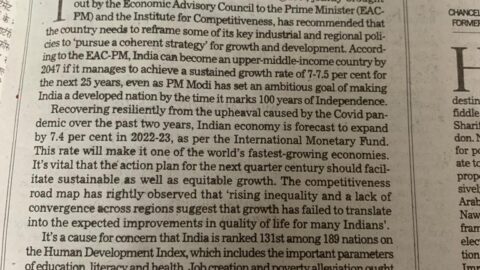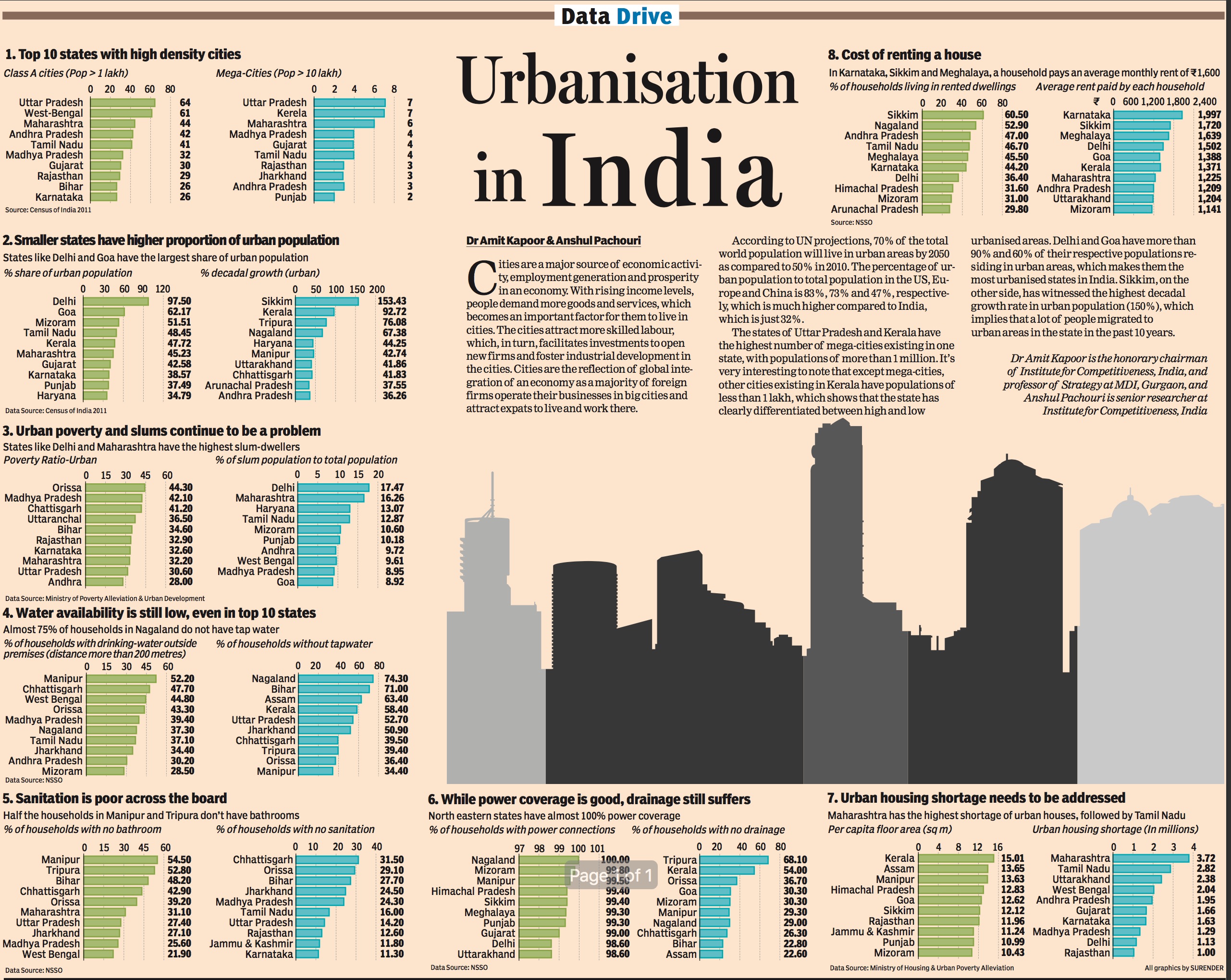It’s All About Productivity
Only sustained productivity growth can raise living standards
It is quite commonplace to hear the argument that India is expected to be the next economic superpower in a few decades. However, the current reality is far from it. India’s real Gross Domestic Product (GDP) per capita (at 2010 prices) for 2016 stands at just $1,861.5 – an abysmally low figure. A straightforward question here: what is it that India seems to misconstrue in the economic game to move up the radar?
Being part of an increasingly knowledge-based world economy, India’s positioning in the global prosperity scenario must be seen and targeted from the national competitiveness perspective. Although very much relevant for any economy, competitiveness isn’t only about macroeconomic variables, availability of natural resources or about state policies; it is about the productivity of a nation’s factors of production (labour, land and capital) employed during production processes.
Talking about productivity in policy making is no recent phenomenon and at some point, you are bound to quote Nobel Prize-winning economist Paul Krugman (1994) that “productivity isnt everything, but in the long run it is almost everything”. However, it must not be confused with labour force participation and the output so produced. A doughnut factory planning to hire new workers to boost overall productivity might end up at lower levels if the new lot turns out to be slower; total output can increase but the average doughnuts per worker per hour could possibly fall. Also, to make the same profit as before, a price hike may be in order, hurting those paying for them. Hence, for productivity to rise in the long term, these new workers will have to be skilled better than the current workers so that output rises in an even more greater proportion and be reflected in the high and increasing standard of living of all the citizens.
Going by Krugman’s words, productivity then is not everything – the wellbeing of the citizens is; which interestingly and inherently is dependent on productivity levels in the overall economy. Firms, apart from being productive domestically, must undergo the sheer pressure and challenge of being innovative to attain global competitive edge as well. This is because international trade and foreign investment allow companies to specialise in industrial segments that are more productive and become global game changers. The fact that certain firms in specific industries can create and sustain real as well distinct advantages for themselves reflects nothing but the productivity gains that help any economy maintain a higher standard of living for its citizens.
Productivity growth has never really topped the list of issues of policymakers in India even though it matters more for emerging market economies than for the advanced world. Being nowhere close to high performing economies do provide strong grounds to rethink our approach since it is sustained productivity growth that can help raise living standards: if workers produce more per hour, there is more of output and income to share and hence more reasons to celebrate finding a place globally!
The article was published with Business Today in the issue dated April 22, 2018.























